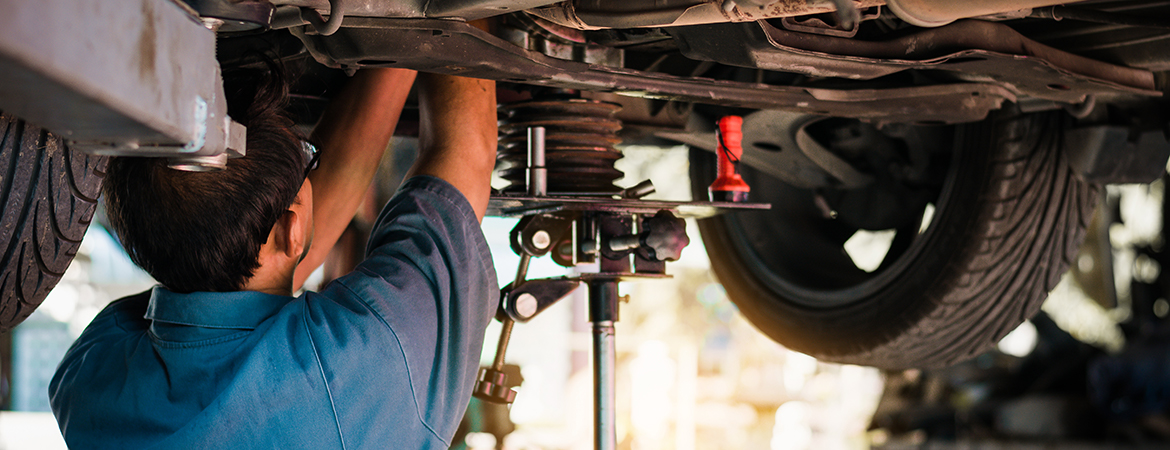Why do people steal catalytic converters?
Catalytic converter thefts are finally on a downward trend after a post-pandemic spike. Many states enacted legislation to curtail the scrap metal trade of stolen parts.

Catalytic converters are part of a car’s exhaust system that help to reduce toxic emissions and pollutants. In the U.S., catalytic converters have been required on all gasoline automobiles since 1975. Sometimes, these essential vehicle components become a target for thieves, who steal converters for the precious metals inside of them—rhodium, platinum, and palladium—which can bring in high prices on the black market. Catalytic converter thefts skyrocketed post-pandemic due to a spike in the price of these metals. Now, as those prices decline, catalytic converter thefts are also declining.
According to the National Insurance Crime Bureau (NICB), catalytic converter thefts increased a whopping 1,215% between 2019 and 2022. Now, thankfully, that trend is on the downward spiral. NICB claims data shows that the average number of catalytic converters stolen each month is down significantly from its peak in 2022 through the first nine months of 2023 (the latest data available).
Kentucky Farm Bureau (KFB) Insurance data reflects this trend. Catalytic converter thefts reported to KFB Insurance more than quadrupled from 2019 to 2020. Thefts continued to rise through 2023, but the rate of those thefts slowed significantly. In 2022, approximately 171 catalytic converter thefts were reported by KFB Insurance members. That number decreased by 69% in 2023, with only 52 thefts reported. KFB Insurance data shows that we are on track for another significant decrease in 2024.
While a thief may get a couple hundred dollars for your car’s catalytic converter, it could cost you thousands to repair the damage. Here are some tips to help reduce the risk of catalytic converter theft:
- If you are in a public space, park near high traffic areas or building entrances.
- Park personal vehicles in a garage. If you do not have access to a garage, consider installing motion sensor security lights. While these lights do not guarantee complete security, they may make some thieves think twice.
- Park fleet vehicles in an enclosed and secured area that is well lit, locked, and alarmed.
- If your car has an alarm, always remember to set it!
- Keep in mind that the higher your vehicle sits off the ground, the easier it is for a thief to access your catalytic converter.
- Install a catalytic converter anti-theft device, such as a “cat strap” or “cat clamp,” which are available from various manufacturers, You can also have your catalytic converter welded to your car or engrave your vehicle’s VIN number directly onto the device.
According to Geoff Brown, a physical damage appraiser for KFB Insurance, there's one telltale sign that your catalytic converter has been stolen: “Theft is typically unnoticed until the vehicle is started. Once started, the exhaust is extremely loud as catalytic converters are located very close to the engine.”
Should you become a victim of catalytic converter theft, call local law enforcement and your insurer as soon as possible. Catalytic converter theft is covered under your KFB Insurance auto policy (minus your deductible) if you have “other than collision” coverage.
>> We want you to be safe out there on the road… but accidents still happen.
At Kentucky Farm Bureau, we’ve got agents in all 120 counties. Click to find one near you.
Check out the video below and subscribe to our YouTube channel for more Tools and Resources.
